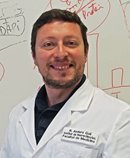Home >
AM23 >
What I Thought Then and What I Would Do Differently Now
What I Thought Then and What I Would Do Differently Now
Leading experts in the fields of clinical interventions, digital technologies, and biomarkers will reflect on experiences that had a significant impact on their professional journey. Hear about major turning points in their careers that changed the way they approach their work. What would they do differently if they could start all over again?
Save Me A Seat
Clinical Interventions
Panelists: Richard Bryant, PhD; Terence M. Keane, PhD; Sheila A.M. Rauch, PhD, ABPP
 Richard Bryant, PhD, is Scientia Professor of Psychology, University of New South Wales, NHMRC Senior Principal Research Fellow, and Director of the UNSW Traumatic Stress Clinic. He has published over 600 journal articles on trauma and PTSD, with a particular focus on early intervention. He has served on both the DSM-5 and ICD-11 committees rewriting the new diagnoses for PTSD. He has conducted many studies in acute stress disorder, and conducted multiple controlled trials on early intervention of people with acute stress disorder. He has also conducted numerous longitudinal studies to map the acute and longer term effects of trauma, and studied acute biological, cognitive, and psychological markers that identify people who require early intervention. He has worked with many agencies around the world in the acute aftermath of disaster and trauma, including the 9/11 terrorist attacks, the 2004 Asian tsunami, Hurricane Katrina, the 2019 terrorist attack in New Zealand, and many natural disasters in Australia.
Richard Bryant, PhD, is Scientia Professor of Psychology, University of New South Wales, NHMRC Senior Principal Research Fellow, and Director of the UNSW Traumatic Stress Clinic. He has published over 600 journal articles on trauma and PTSD, with a particular focus on early intervention. He has served on both the DSM-5 and ICD-11 committees rewriting the new diagnoses for PTSD. He has conducted many studies in acute stress disorder, and conducted multiple controlled trials on early intervention of people with acute stress disorder. He has also conducted numerous longitudinal studies to map the acute and longer term effects of trauma, and studied acute biological, cognitive, and psychological markers that identify people who require early intervention. He has worked with many agencies around the world in the acute aftermath of disaster and trauma, including the 9/11 terrorist attacks, the 2004 Asian tsunami, Hurricane Katrina, the 2019 terrorist attack in New Zealand, and many natural disasters in Australia.
 Terence M. Keane, PhD, is Director of the National Center for PTSD-Behavioral Sciences Division and Associate Chief of Staff for Research & Development at VA Boston Healthcare System. He is Professor of Psychiatry and Assistant Dean for Research at Boston University School of Medicine. VA Boston is the largest research program in all of VA and its investigators have made many significant contributions to Veterans health and that of the general population in the United States. Dr. Keane has published more than 400 articles, books, and chapters on the assessment and treatment of PTSD. For the past 43 years his program of trauma research has been supported by federal funding agencies, such as VA, NIH, DoD, and SAMHSA. In 2013, Keane was named the Co-Principal Investigator of the Consortium to Alleviate PTSD, an initiative supported by the Department of Veterans Affairs and the Department of Defense to improve the care of active duty military and veterans with PTSD through the conduct of multi-site clinical trials of psychotherapy and medications in these populations. Over the years, his contributions to the field have been recognized by many national and international honors including the 2013 Distinguished Research Contributions to Clinical Psychology Award from APA’s Society of Clinical Psychology and a similar award from the Canadian Psychological Association in 2015. In 2011, Dr. Keane received an Honorary Doctor of Science degree from Binghamton University, SUNY and in 2013 he received an honorary doctorate from the William James College for his major contributions to opening the field of psychological trauma to scientific inquiry. In 2015 he was named the recipient of the John Blair Barnwell Award from the Department of Veterans Affairs, the highest national award for those engaged in Clinical Research. In terms of national and international leadership, Keane has served as President of the International Society for Traumatic Stress Studies, the Association of VA Psychologists, APA’s Division of Trauma Psychology, the Society of Clinical Psychology, and the Anxiety & Depression Association of America. He is currently the President of the American Psychological Foundation (2017-present), an organization dedicated to funding and supporting the next generation of psychological scientists.
Terence M. Keane, PhD, is Director of the National Center for PTSD-Behavioral Sciences Division and Associate Chief of Staff for Research & Development at VA Boston Healthcare System. He is Professor of Psychiatry and Assistant Dean for Research at Boston University School of Medicine. VA Boston is the largest research program in all of VA and its investigators have made many significant contributions to Veterans health and that of the general population in the United States. Dr. Keane has published more than 400 articles, books, and chapters on the assessment and treatment of PTSD. For the past 43 years his program of trauma research has been supported by federal funding agencies, such as VA, NIH, DoD, and SAMHSA. In 2013, Keane was named the Co-Principal Investigator of the Consortium to Alleviate PTSD, an initiative supported by the Department of Veterans Affairs and the Department of Defense to improve the care of active duty military and veterans with PTSD through the conduct of multi-site clinical trials of psychotherapy and medications in these populations. Over the years, his contributions to the field have been recognized by many national and international honors including the 2013 Distinguished Research Contributions to Clinical Psychology Award from APA’s Society of Clinical Psychology and a similar award from the Canadian Psychological Association in 2015. In 2011, Dr. Keane received an Honorary Doctor of Science degree from Binghamton University, SUNY and in 2013 he received an honorary doctorate from the William James College for his major contributions to opening the field of psychological trauma to scientific inquiry. In 2015 he was named the recipient of the John Blair Barnwell Award from the Department of Veterans Affairs, the highest national award for those engaged in Clinical Research. In terms of national and international leadership, Keane has served as President of the International Society for Traumatic Stress Studies, the Association of VA Psychologists, APA’s Division of Trauma Psychology, the Society of Clinical Psychology, and the Anxiety & Depression Association of America. He is currently the President of the American Psychological Foundation (2017-present), an organization dedicated to funding and supporting the next generation of psychological scientists.
 Sheila A.M. Rauch, PhD, ABPP, co-led design and now serves as Deputy Director of the Emory Healthcare Veterans Program and is Director of Mental Health Research and Program Evaluation at the Joseph Maxwell Cleland Atlanta VA Medical Center. Dr. Rauch has been developing programs, conducting research and providing PTSD and Anxiety Disorders treatment for over 20 years with the goal to improve access to effective mental health care. Her research focuses on examination of mechanisms involved in the development and treatment of PTSD and improving access to effective interventions. She has led several PTSD treatment outcome and mechanisms trials including pharmaceutical and therapy trials focused on moving interventions for PTSD into medical and primary care settings. She has published over 220 peer-reviewed scholarly articles as well as many chapters and several books on anxiety disorders and posttraumatic stress disorder (PTSD). Her work examines neurobiology and factors involved in the development, maintenance, and treatment of anxiety disorders, psychosocial factors in medical settings, and the relation between physical health and anxiety. She was awarded membership in the American College of Neuropsychopharmacology and serves as a member of the Board of Directors and Scientific Council of the Anxiety and Depression Association of America.
Sheila A.M. Rauch, PhD, ABPP, co-led design and now serves as Deputy Director of the Emory Healthcare Veterans Program and is Director of Mental Health Research and Program Evaluation at the Joseph Maxwell Cleland Atlanta VA Medical Center. Dr. Rauch has been developing programs, conducting research and providing PTSD and Anxiety Disorders treatment for over 20 years with the goal to improve access to effective mental health care. Her research focuses on examination of mechanisms involved in the development and treatment of PTSD and improving access to effective interventions. She has led several PTSD treatment outcome and mechanisms trials including pharmaceutical and therapy trials focused on moving interventions for PTSD into medical and primary care settings. She has published over 220 peer-reviewed scholarly articles as well as many chapters and several books on anxiety disorders and posttraumatic stress disorder (PTSD). Her work examines neurobiology and factors involved in the development, maintenance, and treatment of anxiety disorders, psychosocial factors in medical settings, and the relation between physical health and anxiety. She was awarded membership in the American College of Neuropsychopharmacology and serves as a member of the Board of Directors and Scientific Council of the Anxiety and Depression Association of America.
Return to Top
Digital Technologies
Panelists: Brian Marx, PhD; Barbara Olasov Rothbaum, PhD; Prof. Dr. Col (Retd) Vermetten, MD, PhD
 Brian Marx, PhD, has expertise in the assessment and treatment of veterans with PTSD as well as in the identification and treatment of Veterans and Active-Duty service members with suicidal thoughts and behaviors. He is the Deputy Director of and Senior Psychologist Clinician Investigator in the Behavioral Science Division of the National Center for PTSD and corresponding PI for the VA CSRD side of the Suicide Prevention Research Impact Network (SPRINT). He is also a Professor in the Department of Psychiatry at Boston University Chobanian and Avedisian School of Medicine. He is co-developer of Written Exposure Therapy for PTSD. He is currently the PI/Co-PI/Site PI of three federally funded studies focused on testing the efficacy of treatments for PTSD, PTSD and comorbid suicidal thoughts and behaviors, or examining the course of PTSD, suicidal thoughts and behaviors, and other comorbid conditions within the context of a simulated clinical trial. Other ongoing research continues to use data collected other studies previously funded by VA and DoD to examine risk factors for suicidality, development and testing of new measures of psychopathology and functioning, neurocognitive correlates and predictors of PTSD and suicidality, and understanding moderators and predictors of treatment outcomes among Veterans and Service Members. Dr. Marx has collaborated on a novel measure of suicide risk, the Durham Risk Score. This unique score provides clinicians with an effective means of identifying individuals (including Veterans) who are at high risk for attempting suicide in the future. He is the lead author on the Inventory of Psychosocial Functioning. Additionally, he is a co-author of all the most commonly used measures of PTSD diagnostic status and symptom severity and regularly conduct research on the best methods to assess PTSD and symptom change. His research program has translated NCPTSD and VA’s national research goals and priorities into specific scientific project activities of significant complexity and sufficient sustainability. Over his career, Dr. Marx has held funding simultaneously from VA, DoD, DARPA, NIH, CDC, and private industry. He has collaborated with various private sector companies, such as IBM.
Brian Marx, PhD, has expertise in the assessment and treatment of veterans with PTSD as well as in the identification and treatment of Veterans and Active-Duty service members with suicidal thoughts and behaviors. He is the Deputy Director of and Senior Psychologist Clinician Investigator in the Behavioral Science Division of the National Center for PTSD and corresponding PI for the VA CSRD side of the Suicide Prevention Research Impact Network (SPRINT). He is also a Professor in the Department of Psychiatry at Boston University Chobanian and Avedisian School of Medicine. He is co-developer of Written Exposure Therapy for PTSD. He is currently the PI/Co-PI/Site PI of three federally funded studies focused on testing the efficacy of treatments for PTSD, PTSD and comorbid suicidal thoughts and behaviors, or examining the course of PTSD, suicidal thoughts and behaviors, and other comorbid conditions within the context of a simulated clinical trial. Other ongoing research continues to use data collected other studies previously funded by VA and DoD to examine risk factors for suicidality, development and testing of new measures of psychopathology and functioning, neurocognitive correlates and predictors of PTSD and suicidality, and understanding moderators and predictors of treatment outcomes among Veterans and Service Members. Dr. Marx has collaborated on a novel measure of suicide risk, the Durham Risk Score. This unique score provides clinicians with an effective means of identifying individuals (including Veterans) who are at high risk for attempting suicide in the future. He is the lead author on the Inventory of Psychosocial Functioning. Additionally, he is a co-author of all the most commonly used measures of PTSD diagnostic status and symptom severity and regularly conduct research on the best methods to assess PTSD and symptom change. His research program has translated NCPTSD and VA’s national research goals and priorities into specific scientific project activities of significant complexity and sufficient sustainability. Over his career, Dr. Marx has held funding simultaneously from VA, DoD, DARPA, NIH, CDC, and private industry. He has collaborated with various private sector companies, such as IBM.
 Barbara Olasov Rothbaum, PhD, is Director of the Emory Healthcare Veterans Program. She is a professor and Associate Vice Chair of Clinical Research at Emory School of Medicine in the Department of Psychiatry and Behavioral Sciences and Director of the Trauma and Anxiety Recovery Program and holds the Paul A. Janssen Chair in Neuropsychopharmcology. She specializes in research on the treatment of anxiety disorders, particularly PTSD. She was a member of the Institute of Medicine’s (IOM) Study on Assessment of Ongoing Efforts in the Treatment of PTSD, and briefed the DOD, VA, House and Senate Committees on Veterans Affairs and Armed Services Committees on the IOM report results. Dr. Rothbaum has been studying PTSD treatments since 1986, served on the DSM-IV PTSD subcommittee, and has developed, tested, and disseminated some of the most innovative and effective treatments available for PTSD. She is an inventor of virtual reality exposure therapy. She was a pioneer in applying it in the treatment of PTSD in combat veterans. She has authored over 400 scientific papers and chapters, has published 11 books on the treatment of PTSD and edited 4 others on anxiety, and received the Diplomate in Behavioral Psychology from the American Board of Professional Psychology. She is a past president of the International Society of Traumatic Stress Studies (ISTSS), is currently on the Scientific Advisory Board for the Anxiety Disorders Association of America (ADAA), the Expert Scientific Panel for the National Center for PTSD (NC-PTSD), and the executive committee of the Warrior Care Network. She is currently a member on the Trichotillomania Learning Center Board of Directors, Warrior Wellness Alliance, and the Wounded Warrior Program’s Warrior Care Network’s: Executive Committee, Data and Outcomes Committee and the Clinical Practices Committee. She is a fellow of the ACNP (American College of Neuropsychopharmacology), the National Academy of Inventors (NAI), the Association for Behavioral and Cognitive Therapies (ABCT), and American Psychological Association’s Division 56 (Division of Trauma Psychology) and was awarded the 2010 “Award for Outstanding Contributions to the Practice of Trauma Psychology” for APA Division 56 and the Robert S. Laufer Award for Outstanding Scientific Achievement from the International Society for Traumatic Stress Studies (ISTSS). Dr. Rothbaum received the 2021 ISTSS the Lifetime Achievement Award. Her recent book is on PTSD for the general public: PTSD: What Everyone Needs to Know.
Barbara Olasov Rothbaum, PhD, is Director of the Emory Healthcare Veterans Program. She is a professor and Associate Vice Chair of Clinical Research at Emory School of Medicine in the Department of Psychiatry and Behavioral Sciences and Director of the Trauma and Anxiety Recovery Program and holds the Paul A. Janssen Chair in Neuropsychopharmcology. She specializes in research on the treatment of anxiety disorders, particularly PTSD. She was a member of the Institute of Medicine’s (IOM) Study on Assessment of Ongoing Efforts in the Treatment of PTSD, and briefed the DOD, VA, House and Senate Committees on Veterans Affairs and Armed Services Committees on the IOM report results. Dr. Rothbaum has been studying PTSD treatments since 1986, served on the DSM-IV PTSD subcommittee, and has developed, tested, and disseminated some of the most innovative and effective treatments available for PTSD. She is an inventor of virtual reality exposure therapy. She was a pioneer in applying it in the treatment of PTSD in combat veterans. She has authored over 400 scientific papers and chapters, has published 11 books on the treatment of PTSD and edited 4 others on anxiety, and received the Diplomate in Behavioral Psychology from the American Board of Professional Psychology. She is a past president of the International Society of Traumatic Stress Studies (ISTSS), is currently on the Scientific Advisory Board for the Anxiety Disorders Association of America (ADAA), the Expert Scientific Panel for the National Center for PTSD (NC-PTSD), and the executive committee of the Warrior Care Network. She is currently a member on the Trichotillomania Learning Center Board of Directors, Warrior Wellness Alliance, and the Wounded Warrior Program’s Warrior Care Network’s: Executive Committee, Data and Outcomes Committee and the Clinical Practices Committee. She is a fellow of the ACNP (American College of Neuropsychopharmacology), the National Academy of Inventors (NAI), the Association for Behavioral and Cognitive Therapies (ABCT), and American Psychological Association’s Division 56 (Division of Trauma Psychology) and was awarded the 2010 “Award for Outstanding Contributions to the Practice of Trauma Psychology” for APA Division 56 and the Robert S. Laufer Award for Outstanding Scientific Achievement from the International Society for Traumatic Stress Studies (ISTSS). Dr. Rothbaum received the 2021 ISTSS the Lifetime Achievement Award. Her recent book is on PTSD for the general public: PTSD: What Everyone Needs to Know.
 Prof. Dr. Col (Retd) Vermetten, MD, PhD, is a psychiatrist and professor at the Department of Psychiatry at Leiden University Medical Center. With a notable career as the former Head of Research in the Military Mental Health Service within the Dutch Ministry of Defense, he has made significant contributions to the field of psychiatry and neuroscience. Early in his career, Dr. Vermetten conducted research in the field of hypnosis and dissociation, laying the foundation for his subsequent specialization in working with military officers and veterans. This expertise has been invaluable in understanding the unique challenges faced by individuals dealing with trauma and PTSD in the digital age. His commitment to exploring innovative approaches to PTSD treatment is evident through his passion for combining neuroscience and clinical care with novel drugs and technology, leveraging digital advancements to improve therapeutic outcomes. Dr. Vermetten contributed with over 250 papers, more than 30 book chapters, and contributions to various edited books. His research has highlighted the intricate interplay of stress, trauma, complex PTSD, and neuroscience.
Prof. Dr. Col (Retd) Vermetten, MD, PhD, is a psychiatrist and professor at the Department of Psychiatry at Leiden University Medical Center. With a notable career as the former Head of Research in the Military Mental Health Service within the Dutch Ministry of Defense, he has made significant contributions to the field of psychiatry and neuroscience. Early in his career, Dr. Vermetten conducted research in the field of hypnosis and dissociation, laying the foundation for his subsequent specialization in working with military officers and veterans. This expertise has been invaluable in understanding the unique challenges faced by individuals dealing with trauma and PTSD in the digital age. His commitment to exploring innovative approaches to PTSD treatment is evident through his passion for combining neuroscience and clinical care with novel drugs and technology, leveraging digital advancements to improve therapeutic outcomes. Dr. Vermetten contributed with over 250 papers, more than 30 book chapters, and contributions to various edited books. His research has highlighted the intricate interplay of stress, trauma, complex PTSD, and neuroscience.
Return to Top
Biomarkers for PTSD
Panelists: Raul Andero, PhD; Tanja Jovanovic, PhD; Murray B. Stein MD, MPH, FRCPC; Arieh Y. Shalev, MD
 Raul Andero, PhD obtained his PhD in Neuroscience (Extraordinary Doctoral Prize) from the Universitat Autònoma de Barcelona (UAB) in 2010 studying behavioural animal models of stress and memory. Then he started as Postdoctoral Fellow and was later promoted to Research Associate at the laboratory of Dr. Ressler at Howard Hughes Medical Institute, Emory University, USA. Professor Andero joined McLean Hospital, Harvard Medical School as Faculty Instructor in Psychiatry in 2015. He combined studies with psychiatric patients and animal models of fear memory. He established his laboratory in 2016 at the UAB-Institute of Neuroscience as Ramón y Cajal Fellow. Since 2021 as ICREA Research Professor he continues the work of his laboratory aiming to translate behavioural and molecular basic findings into the clinic.
Raul Andero, PhD obtained his PhD in Neuroscience (Extraordinary Doctoral Prize) from the Universitat Autònoma de Barcelona (UAB) in 2010 studying behavioural animal models of stress and memory. Then he started as Postdoctoral Fellow and was later promoted to Research Associate at the laboratory of Dr. Ressler at Howard Hughes Medical Institute, Emory University, USA. Professor Andero joined McLean Hospital, Harvard Medical School as Faculty Instructor in Psychiatry in 2015. He combined studies with psychiatric patients and animal models of fear memory. He established his laboratory in 2016 at the UAB-Institute of Neuroscience as Ramón y Cajal Fellow. Since 2021 as ICREA Research Professor he continues the work of his laboratory aiming to translate behavioural and molecular basic findings into the clinic.
 Tanja Jovanovic, PhD, is a Professor in the Department of Psychiatry and Behavioral Neurosciences and the David and Patricia Barron Chair in PTSD Neurobiology at Wayne State University. Dr. Jovanovic completed her B.S. in Biology from Oklahoma Christian University in 1994, and went on to receive her Ph.D. in Neuroscience from Emory University in 2002. She continued to work as a Postdoctoral Fellow and then as an Assistant Professor at Emory University, developing her research program in trauma-related disorders. Until 2018, she directed the Grady Trauma Project in Atlanta, when she was recruited to an Endowed Chair position at Wayne State University to direct a translational neuroscience center for trauma. She now directs the Detroit Trauma Project, which investigates the impact of urban trauma exposure on the brain. Her research employs psychophysiological (e.g. fear-potentiated startle, skin conductance response, heart-rate variability) and brain imaging methods (e.g. MRI, fMRI) to examine biomarkers of risk for trauma-related psychopathology, such as post-traumatic stress disorder (PTSD). Dr. Jovanovic has received multiple NIH grants and two awards from the Brain and Behaviour Research Foundation. Currently, Dr. Jovanovic is the Principal Investigator on two R01 research projects from NIMH; the first investigates brain development in children with urban trauma exposure, and the second examines neurobiological mechanisms of comorbid PTSD and HIV. Dr. Jovanovic is also dedicated to training the next generation of excellent scientists, and has mentored trainees at multiple levels from high school, undergraduate students, graduate students, medical students and residents, postdoctoral fellows and junior faculty. She has especially focused on training women and underrepresented minority trainees and many of her students and postdocs and gone on to build successful careers in academia. She has published over 230 peer-reviewed papers and served on national and international grant review panels.
Tanja Jovanovic, PhD, is a Professor in the Department of Psychiatry and Behavioral Neurosciences and the David and Patricia Barron Chair in PTSD Neurobiology at Wayne State University. Dr. Jovanovic completed her B.S. in Biology from Oklahoma Christian University in 1994, and went on to receive her Ph.D. in Neuroscience from Emory University in 2002. She continued to work as a Postdoctoral Fellow and then as an Assistant Professor at Emory University, developing her research program in trauma-related disorders. Until 2018, she directed the Grady Trauma Project in Atlanta, when she was recruited to an Endowed Chair position at Wayne State University to direct a translational neuroscience center for trauma. She now directs the Detroit Trauma Project, which investigates the impact of urban trauma exposure on the brain. Her research employs psychophysiological (e.g. fear-potentiated startle, skin conductance response, heart-rate variability) and brain imaging methods (e.g. MRI, fMRI) to examine biomarkers of risk for trauma-related psychopathology, such as post-traumatic stress disorder (PTSD). Dr. Jovanovic has received multiple NIH grants and two awards from the Brain and Behaviour Research Foundation. Currently, Dr. Jovanovic is the Principal Investigator on two R01 research projects from NIMH; the first investigates brain development in children with urban trauma exposure, and the second examines neurobiological mechanisms of comorbid PTSD and HIV. Dr. Jovanovic is also dedicated to training the next generation of excellent scientists, and has mentored trainees at multiple levels from high school, undergraduate students, graduate students, medical students and residents, postdoctoral fellows and junior faculty. She has especially focused on training women and underrepresented minority trainees and many of her students and postdocs and gone on to build successful careers in academia. She has published over 230 peer-reviewed papers and served on national and international grant review panels.
 Murray B. Stein MD, MPH, FRCPC is Distinguished Professor of Psychiatry and Public Health at the University of California San Diego (UCSD). He is also a Staff Psychiatrist at the VA San Diego Healthcare System. Dr. Stein graduated from the University of Manitoba and completed his residency and post-residency fellowship at the University of Toronto and at the National Institute of Mental Health in Bethesda, Maryland, USA. He subsequently completed a Master of Public Health degree at the Johns Hopkins University Bloomberg School of Public Health in Baltimore, MD. Dr. Stein’s research interests include the epidemiology, neurobiology, and treatment of anxiety disorders especially social phobia, panic disorder, and posttraumatic stress disorder. He has written or co-written over 800 peer-reviewed scientific articles on these topics and hHis federally funded research has included studies of interventions for anxiety disorders in primary care, pharmacological approaches to treatment-resistant anxiety disorders, and functional neuroimaging and genomic research in anxiety and trauma-related disorders. Dr. Stein is Co-Editor-in-Chief for UpToDate in Psychiatry, and Deputy Editor for the journal Biological Psychiatry. He was Editor-in-Chief for the journal Depression and Anxiety from 2017-2022.
Murray B. Stein MD, MPH, FRCPC is Distinguished Professor of Psychiatry and Public Health at the University of California San Diego (UCSD). He is also a Staff Psychiatrist at the VA San Diego Healthcare System. Dr. Stein graduated from the University of Manitoba and completed his residency and post-residency fellowship at the University of Toronto and at the National Institute of Mental Health in Bethesda, Maryland, USA. He subsequently completed a Master of Public Health degree at the Johns Hopkins University Bloomberg School of Public Health in Baltimore, MD. Dr. Stein’s research interests include the epidemiology, neurobiology, and treatment of anxiety disorders especially social phobia, panic disorder, and posttraumatic stress disorder. He has written or co-written over 800 peer-reviewed scientific articles on these topics and hHis federally funded research has included studies of interventions for anxiety disorders in primary care, pharmacological approaches to treatment-resistant anxiety disorders, and functional neuroimaging and genomic research in anxiety and trauma-related disorders. Dr. Stein is Co-Editor-in-Chief for UpToDate in Psychiatry, and Deputy Editor for the journal Biological Psychiatry. He was Editor-in-Chief for the journal Depression and Anxiety from 2017-2022.
 Arieh Y. Shalev, MD, is Adjunct Professor of Psychiatry at NYU Grossman School of Medicine and Emeritus Professor of Psychiatry at Hebrew University and Hadassah School of Medicine. He is also the founding director of the Center for Traumatic Stress Studies at Hadassah University Hospital, as well as the editor and founder of the Israel Journal of Psychotherapy (Sihot/ Dialogues). Dr. Shalev's research has focused on the etiology, course and treatment of PTSD in adults. He received the ISTSS Lifetime Achievement Award in 2007 and the ISTSS Robert S. Laufer Memorial Award for Outstanding Scientific Achievement in 1995.
Arieh Y. Shalev, MD, is Adjunct Professor of Psychiatry at NYU Grossman School of Medicine and Emeritus Professor of Psychiatry at Hebrew University and Hadassah School of Medicine. He is also the founding director of the Center for Traumatic Stress Studies at Hadassah University Hospital, as well as the editor and founder of the Israel Journal of Psychotherapy (Sihot/ Dialogues). Dr. Shalev's research has focused on the etiology, course and treatment of PTSD in adults. He received the ISTSS Lifetime Achievement Award in 2007 and the ISTSS Robert S. Laufer Memorial Award for Outstanding Scientific Achievement in 1995.
Return to Top